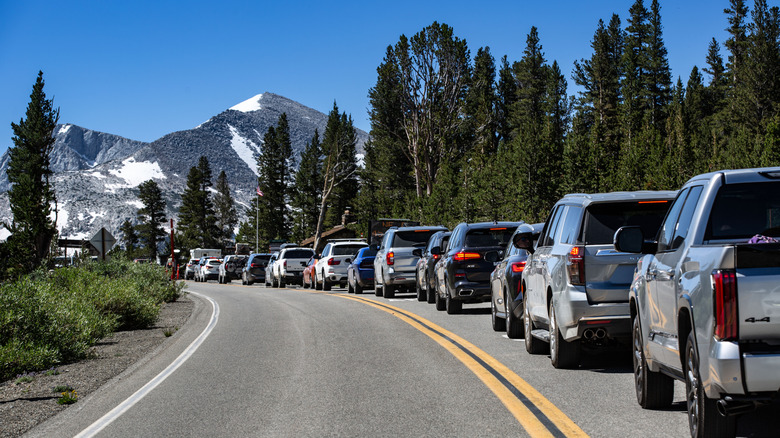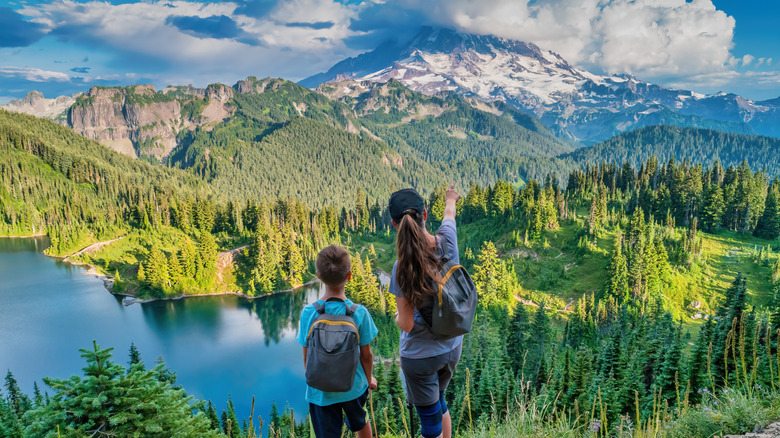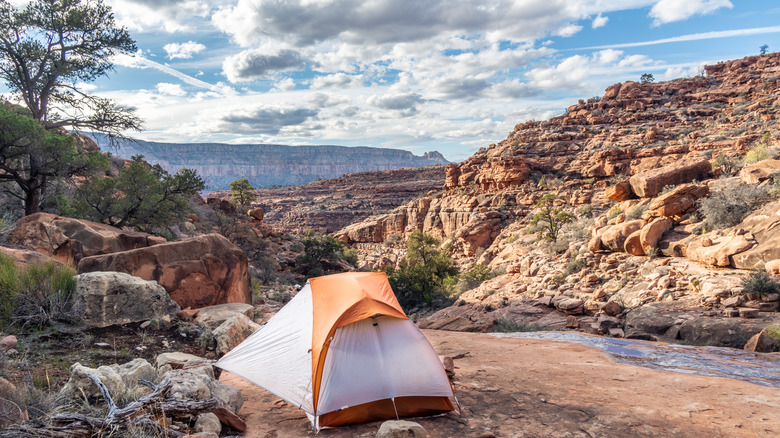A Recent Ban Spreading Across Several National Parks Is Sparking Big Controversy Among Visitors
"National parks are the best idea we ever had. Absolutely American, absolutely democratic, they reflect us at our best rather than our worst," said novelist Wallace Stegner, via the National Parks Service website. And we couldn't agree more. From Yellowstone National Park, established in 1872, to the New River Gorge National Park and Preserve, established in 2021, national parks are a vital and valued part of the United States. And while many of the national parks are protected to help preserve their wildness for future generations, the parks still undergo changes and updates from time to time. One recent update over the last couple of years that has caused a bit of a stir is some of the parks and national historic sites going cashless for entrance and campground fees.
While the National Park Service (NPS) made the decision to ban cash at some parks to help reduce time spent waiting in entrance lines, it left some parkgoers angry. In fact, in March 2024, a few parkgoers sued the NPS for not accepting cash. A judge dismissed the lawsuit in February of 2025; however, an updated version of the lawsuit was refiled and is still in process at the time of writing.
Concerns about the national parks going cash free
Even with the lawsuit, additional parks like the Sequoia and Kings Canyon National Parks in California have been moving ahead with the transition to cashless entrance fees. The main reasons given include efficiency concerns, ostensibly leaving park employees with more time to do other things. "During peak season, park rangers spend up to eight and a half hours per day documenting, reporting, and transferring cash receipts," the Sequoia and Kings Canyon parks superintendent Clay Jordan said in a press release about the new policy.
Still, parkgoers seem to be unsure about the change and have taken to social media to voice their opinions, with people on both sides. As one Redditor explained, "I'm really conflicted. The costs (both time and financial) associated with cash make it cost prohibitive, but the federal government absolutely should accept the currency that it produces." Others on the same post mentioned that cashless policies could be potentially problematic for international visitors, who may plan to travel with cash to avoid international fees on card transactions.
Some also questioned whether the change would actually save time. Addressing the efficacy of the cash free system at Mount Rainier National Park, one person on X (formerly known as Twitter) posted: "Is [the] internet reliable enough to do speedy transactions there? I'm sure this is how many already pay but a slow internet day will result in really slow lines."
Parks that are already cashless and where to use your cash instead
Not all national parks have made the switch to solely accepting cards and contactless payment methods, but there seems to be a continuing move in that direction at parks across the country. As for where you'll need to make sure to have a credit card or a mobile pay option ready, some parks that are already cash free include: California's Yosemite National Park, Arizona's Saguaro National Park and Organ Pipe Cactus National Monument, Colorado's Black Canyon of the Gunnison National Park, New York's Home of Franklin D Roosevelt, and Maine's Acadia National Park, with its postcard worthy scenery. They're set to be joined by Shenandoah National Park, starting July 1, 2025, with the expectation that more will follow suit.
The cash free status of a park will likely also apply to campground fees; so make sure to check the park website for its fee info before you go. However, the good news is that a park's cashless policy won't necessarily apply to all the individual hotels and concessionaires within the park. This is because if a hotel or store in a park is not owned and operated by the NPS, it can set its own rules for payments. Also, if you do need to buy your entrance pass with cash there may be a way to do it somewhere else. For example, for Grand Canyon National Park, you can purchase an entrance pass with cash in nearby Tusayan, an affordable resort town with Western charm.


